 W
WThe director of the Central Intelligence Agency (D/CIA) is a statutory office that functions as the head of the Central Intelligence Agency, which in turn is a part of the United States Intelligence Community.
 W
WJohn Owen Brennan is a former American intelligence officer who served as the Director of the Central Intelligence Agency (CIA) from March 2013 to January 2017. He served as chief counterterrorism advisor to U.S. President Barack Obama, with the title Deputy National Security Advisor for Homeland Security and Counterterrorism, and Assistant to the President. Previously, he advised Obama on foreign policy and intelligence issues during the 2008 election campaign and presidential transition.
 W
WWilliam Joseph Burns is an American diplomat and career ambassador serving as the director of the Central Intelligence Agency since March 19, 2021. He previously served as the United States deputy secretary of state from 2011 to 2014. He retired from the US Foreign Service in 2014 after a 33-year diplomatic career. From 2014 to 2021, he served as president of the Carnegie Endowment for International Peace.
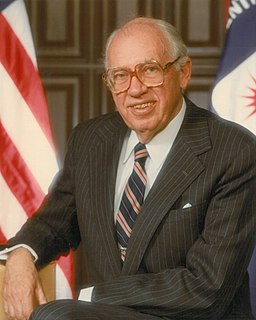 W
WWilliam Joseph Casey was the Director of Central Intelligence from 1981 to 1987. In this capacity he oversaw the entire United States Intelligence Community and personally directed the Central Intelligence Agency (CIA).
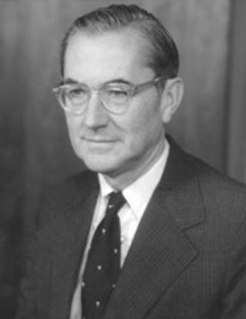 W
WWilliam Egan Colby was an American intelligence officer who served as Director of Central Intelligence (DCI) from September 1973 to January 1976.
 W
WJohn Mark Deutch is an American physical chemist and civil servant. He was the United States Deputy Secretary of Defense from 1994 to 1995 and Director of Central Intelligence (DCI) from May 10, 1995 until December 15, 1996. He is an emeritus Institute Professor at the Massachusetts Institute of Technology and serves on the boards of directors of Citigroup, Cummins, Raytheon, and Schlumberger Ltd. Deutch is also a member of the Trilateral Commission.
 W
WAllen Welsh Dulles was the first civilian Director of Central Intelligence (DCI), and its longest-serving director to date. As head of the Central Intelligence Agency (CIA) during the early Cold War, he oversaw the 1953 Iranian coup d'état, the 1954 Guatemalan coup d'état, the Lockheed U-2 aircraft program, the Project MKUltra mind control program and the Bay of Pigs Invasion. He was fired by John F. Kennedy over the latter fiasco.
 W
WRobert Michael Gates is an American intelligence analyst, and university president who served as the 22nd United States secretary of defense from 2006 to 2011. He was originally appointed by President George W. Bush and was retained for service by President Barack Obama. Gates began his career serving as an officer in the United States Air Force but was quickly recruited by the Central Intelligence Agency (CIA). Gates served for 26 years in the CIA and the National Security Council, and was Director of Central Intelligence under President George H. W. Bush. After leaving the CIA, Gates became president of Texas A&M University and was a member of several corporate boards. Gates served as a member of the Iraq Study Group, the bipartisan commission co-chaired by James A. Baker III and Lee H. Hamilton, that studied the lessons of the Iraq War.
 W
WPorter Johnston Goss is an American politician and government official who served as a Republican member of the U.S. House of Representatives from 1989 until 2004, when he became the last Director of Central Intelligence (DCI) and the first Director of the Central Intelligence Agency following the passage of the 2004 Intelligence Reform and Terrorism Prevention Act, which abolished the DCI position and replaced it with the Director of National Intelligence on April 21, 2005.
 W
WGina Cheri Walker Haspel is an American intelligence officer who served as director of the Central Intelligence Agency (CIA) from 2018 to 2021. She is the first woman to hold the post on a permanent basis and was previously the deputy director under Mike Pompeo during the early days of Donald Trump's presidency.
 W
WMichael Vincent Hayden is a retired United States Air Force four-star general and former Director of the National Security Agency, Principal Deputy Director of National Intelligence, and Director of the Central Intelligence Agency. Hayden currently co-chairs the Bipartisan Policy Center's Electric Grid Cyber Security Initiative. In 2017, Hayden became a national security analyst for CNN.
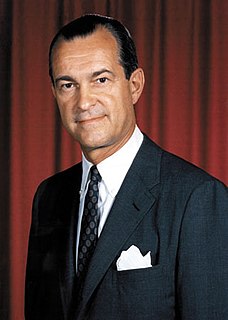 W
WRichard McGarrah Helms was an American government official and diplomat who served as Director of Central Intelligence (DCI) from 1966 to 1973. Helms began intelligence work with the Office of Strategic Services during World War II. Following the 1947 creation of the Central Intelligence Agency (CIA) he rose in its ranks during the presidencies of Truman, Eisenhower and Kennedy. Helms then was DCI under Presidents Johnson and Nixon.
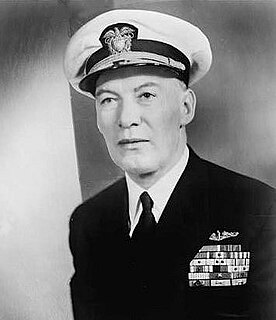 W
WRoscoe Henry Hillenkoetter was the third director of the post–World War II United States Central Intelligence Group (CIG), the third Director of Central Intelligence (DCI), and the first director of the Central Intelligence Agency created by the National Security Act of 1947. He served as DCI and director of the CIG and the CIA from May 1, 1947, to October 7, 1950, and, after his retirement from the United States Navy, was a member of the board of governors of National Investigations Committee On Aerial Phenomena (NICAP) from 1957 to 1962.
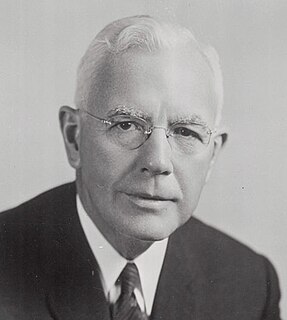 W
WJohn Alexander McCone was an American businessman and politician who served as Director of Central Intelligence from 1961 to 1965, during the height of the Cold War.
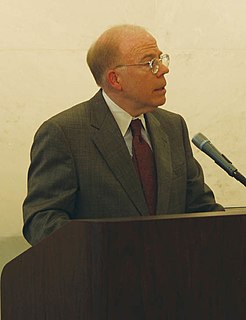 W
WJohn Edward McLaughlin is an American intelligence official who served as Deputy Director of Central Intelligence and briefly as acting Director of Central Intelligence. He currently serves as a Senior Fellow and Distinguished Practitioner-in-Residence at the Philip Merrill Center for Strategic Studies at the Paul H. Nitze School of Advanced International Studies (SAIS) of the Johns Hopkins University.
 W
WMichael Joseph Morell is an American former career intelligence analyst. He served as the deputy director of the Central Intelligence Agency from 2010 to 2013 and twice as its acting director, first in 2011 and then from 2012 to 2013. As a CIA analyst he served as presidential daily briefer to George W. Bush, including on the morning of September 11, 2001. In his book, The Great War of Our Time, Morell defends the use of drones by both the Bush and Obama Administrations against suspected terrorists and he explains the CIA's use of Enhanced Interrogation Techniques by the Bush Administration. He is now Senior Counselor and the Global Chairman of the Geo-Political Risk Practice at Beacon Global Strategies LLC, a consulting firm in Washington, D.C.
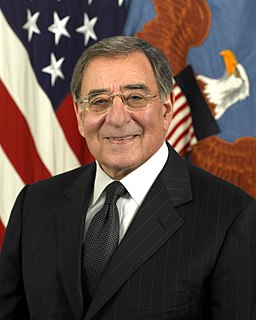 W
WLeon Edward Panetta is an American Democratic Party politician who has served in several different public office positions, including the Secretary of Defense, Director of the CIA, White House Chief of Staff, Director of the Office of Management and Budget, and as a U.S. Representative from California.
 W
WMeroë Park is an American former intelligence official who served as Executive Director of the Central Intelligence Agency (CIA) from 2013 to 2017. Prior to Mike Pompeo's confirmation, she briefly served as Acting Director of the Central Intelligence Agency in 2017. On January 27, 2020, she became Deputy Secretary and Chief Operating Officer of the Smithsonian Institution.
 W
WDavid Howell Petraeus, is a retired United States Army general and public official. He served as Director of the Central Intelligence Agency from September 6, 2011, until his resignation on November 9, 2012. Prior to his assuming the directorship of the CIA, Petraeus served 37 years in the United States Army. His last assignments in the Army were as commander of the International Security Assistance Force (ISAF) and commander, U.S. Forces – Afghanistan (USFOR-A) from July 4, 2010, to July 18, 2011. His other four-star assignments include serving as the 10th commander, U.S. Central Command (USCENTCOM) from October 13, 2008, to June 30, 2010, and as commanding general, Multi-National Force – Iraq (MNF-I) from February 10, 2007, to September 16, 2008. As commander of MNF-I, Petraeus oversaw all coalition forces in Iraq.
 W
WMichael Richard Pompeo is an American politician, diplomat, businessman, and attorney who served under President Donald Trump as director of the Central Intelligence Agency (CIA) from 2017 to 2018 and as the 70th United States secretary of state from 2018 to 2021.
 W
WWilliam Francis Raborn, Jr., was the United States Director of Central Intelligence from April 28, 1965 until June 30, 1966. He was also a career United States Navy officer who led the project to develop the Polaris missile system and retired from the Navy in 1963 as a Vice Admiral.
 W
WJames Rodney Schlesinger was an American economist and public servant who was best known for serving as Secretary of Defense from 1973 to 1975 under Presidents Richard Nixon and Gerald Ford. Prior to becoming Secretary of Defense, he served as Chair of the Atomic Energy Commission (AEC) from 1971 to 1973, and as CIA Director for a few months in 1973. He became America's first Secretary of Energy under Jimmy Carter in 1977, serving until 1979.
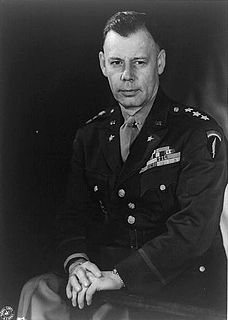 W
WGeneral Walter Bedell "Beetle" Smith was a senior officer of the United States Army who served as General Dwight D. Eisenhower's chief of staff at Allied Forces Headquarters (AFHQ) during the Tunisia Campaign and the Allied invasion of Italy in 1943, during World War II. He was Eisenhower's chief of staff at the Supreme Headquarters Allied Expeditionary Force (SHAEF) in the campaign in Western Europe from 1944 to 1945.
 W
WSidney William Souers was an American admiral and intelligence expert.
 W
WGeorge John Tenet is a former Director of Central Intelligence (DCI) for the United States Central Intelligence Agency as well as a Distinguished Professor in the Practice of Diplomacy at Georgetown University.
 W
WStansfield Turner was an admiral in the United States Navy who served as President of the Naval War College (1972–1974), commander of the United States Second Fleet (1974–1975), Supreme Allied Commander NATO Southern Europe (1975–1977), and was Director of Central Intelligence (1977–1981) under the Carter administration. A graduate of University of Oxford and the United States Naval Academy, Turner served for more than 30 years in the Navy, commanding warships, a carrier group, and NATO's military forces in southern Europe, among other commands.
 W
WHoyt Sanford Vandenberg was a United States Air Force general. He served as the second Chief of Staff of the Air Force, and the second Director of Central Intelligence.
 W
WWilliam Hedgcock Webster is an American attorney and jurist who most recently served as chair of the Homeland Security Advisory Council from 2005 until 2020. He was a United States District Judge of the United States District Court for the Eastern District of Missouri and a United States Circuit Judge of the United States Court of Appeals for the Eighth Circuit before becoming Director of the Federal Bureau of Investigation (FBI) from 1978 to 1987 and Director of Central Intelligence (CIA) from 1987 to 1991. He is the only person to have held both positions.
 W
WRobert James Woolsey Jr. headed the Central Intelligence Agency from February 5, 1993, until January 10, 1995. He held a variety of government positions in the 1970s and 1980s, including as United States Under Secretary of the Navy from 1977 to 1979, and was involved in treaty negotiations with the Soviet Union for five years in the 1980s. His career also included time as a professional lawyer, venture capitalist and investor in the private sector.